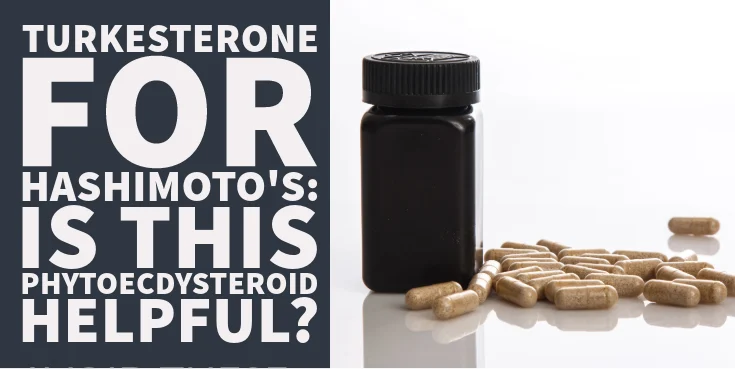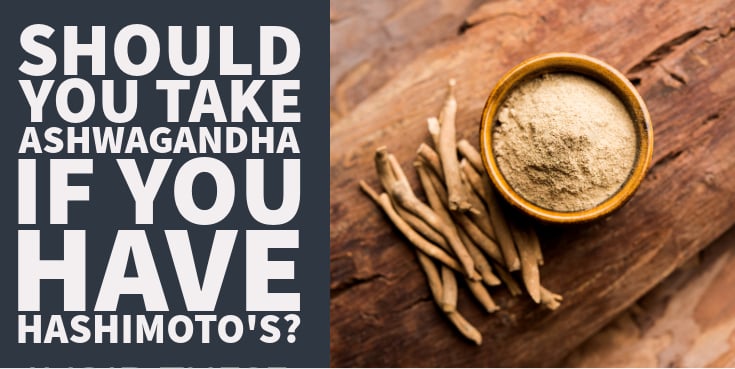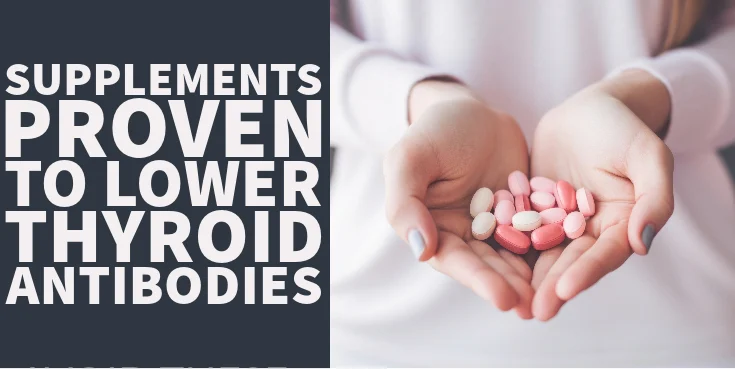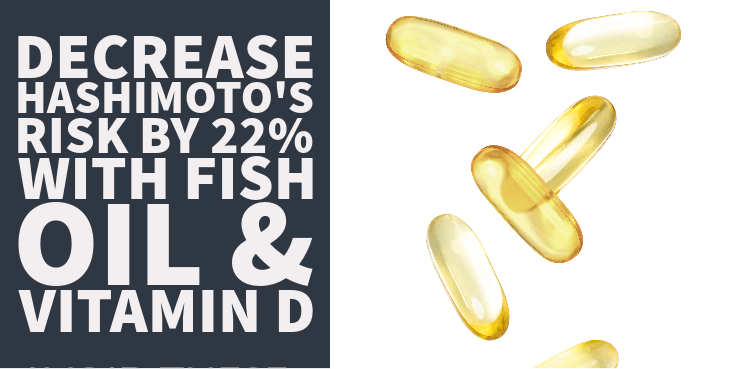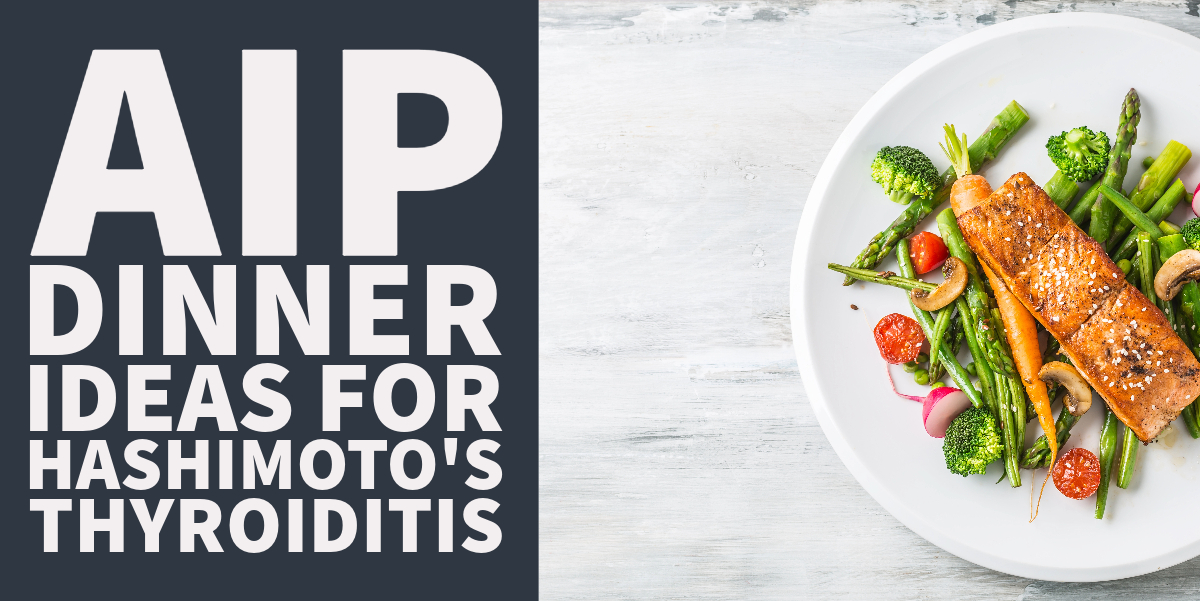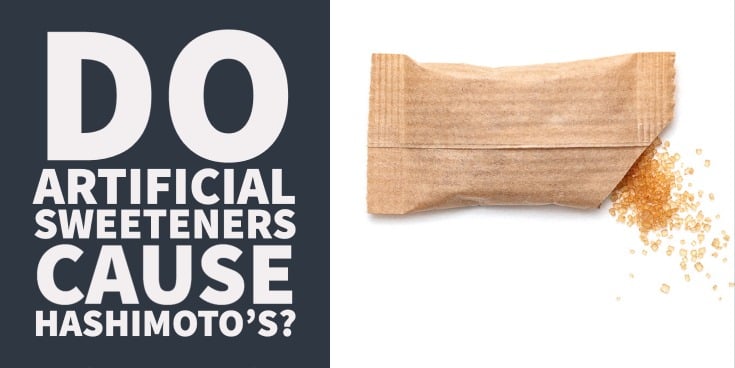One of the most frustrating things about having Hashimoto’s is the near complete lack of treatment options available.
If we are talking about prescription medications that your doctor can give you, the list includes levothyroxine and maybe low-dose naltrexone, if you can find a doctor to prescribe it.
As far as treating the underlying immune dysfunction that causes Hashimoto’s, levothyroxine is more of a bandaid than anything else which is why most people who take it still continue to struggle with autoimmune-related symptoms when taking it (even if their thyroid-related symptoms clear up).
Things get a little more hopeful when you start looking into natural therapies because, believe it or not, there are plenty that have a good track record of lowering thyroid antibodies.
You can see the full list here.
Outside of the small bunch of supplements that are proven to work for Hashimoto’s (the list is only 3-4 long), there are some that have the potential to work either based on how they work at the physiologic level or based on anecdotal experience.
And it’s one of those that I want to talk about today.
Turkesterone.
DOWNLOAD FREE RESOURCES
Foods to Avoid if you Have Thyroid Problems:
I’ve found that these 10 foods cause the most problems for thyroid patients. Learn which foods you should avoid if you have thyroid disease of any type.
The Complete List of Thyroid Lab tests:
The list includes optimal ranges, normal ranges, and the complete list of tests you need to diagnose and manage thyroid disease correctly!
What is Turkesterone?
Turkesterone is a testosterone-like compound (similar to the same testosterone that humans produce) that is found naturally in plants and insects (1).
This compound is part of a larger family of steroid-like compounds known as phytoecdysteroids.
Tukesterone has been isolated from plant sources, namely the plant Ajuga turkestanica, where it has been tested in both humans and mice.
These studies show promising results indicating that turkesterone has anabolic or muscle growth-promoting effects.
One study followed 46 males for 10 weeks (2) and found that those taking ecdysteroids experienced gains in muscle mass, improvements in strength, and reductions in body mass without experiencing negative side effects, damage to the liver or kidney, or changes to sex hormones.
These benefits were significant enough for researchers to call for turkesterone to be banned from use by athletes.
Put into context, it appears as if turkesterone may be a way to stimulate similar androgen and anabolic effects as testosterone in humans without negative side effects.
And this is where things get interesting for patients with Hashimoto’s and why turkesterone could be a potential therapeutic agent for those with thyroid autoimmune disease.
How It May Help Hashimoto’s
It’s well known that women experience autoimmune diseases at a much higher rate when compared to men.
The rate is somewhere around 7:1 in favor of women (3).
Researchers have attempted to find out why this discrepancy exists across the board for almost all autoimmune diseases and one potential explanation for this is the relative difference in baseline testosterone levels between both genders (4).
Men have a much higher baseline testosterone level compared to women which may confer some protective benefit to developing autoimmune disease.
And this idea is supported by large studies that show that men with low testosterone have higher rates of developing autoimmune diseases that normalize with testosterone replacement therapy (5).
It’s also further supported by the fact that many women with Hashimoto’s have seen a reduction in Hashimoto’s-related symptoms when they take bio-identical testosterone.
Many people, doctors included, believe that testosterone is primarily a male sex hormone but it’s incredibly important for women as well.
And given that turkesterone seems to provide similar effects as testosterone when taken in males (as the study above suggests), it stands to reason that it may be a potential over-the-counter therapy that can benefit women (and men) with Hashimoto’s.
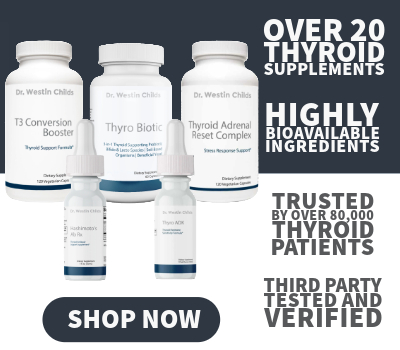
But let me be clear:
There are no studies that prove that turkesterone has the ability to positively impact Hashimoto’s, or any autoimmune disease for that matter, so this suggestion is purely theoretical and stems from our understanding of physiology, not rigorous testing.
But given that the treatment options are so scarce for patients with Hashimoto’s, it’s certainly worth considering.
And, even on the off chance that it doesn’t provide direct benefits to the underlying autoimmune aspect of Hashimoto’s, its other benefits are still sufficient to warrant exploration by patients who have Hashimoto’s.
Potential Benefits (What to Expect)
Existing research shows that combining strength training with turkesterone can:
- Help build muscle mass: Some research has suggested that the anabolic effects of turkesterone on muscle building may be similar to those of other testosterone analogs used by bodybuilders.
- Enhances exercise performance: Through its impact on ATP production, turkesterone supports more energy production in the muscles which means stronger contraction and more force during a workout.
- Improves body composition: likely through its impact on muscle building, turkesterone supplementation can also promote a leaner physique by promoting fat loss.
- Improves muscle recovery: By improving the rate of muscle fiber repair post-workout, turkesterone may support workout recovery.
- Supports energy: Acting as an adaptogenic compound, turkesterone may also provide benefits to energy, vitality, mental health, and libido much in the same way that maca, ashwagandha, and Rhodiola do. These compounds help your body better manage stress which may translate into more stable cortisol function.
Theoretical benefits (not yet proven):
- May improve autoimmune disease: It is speculated that turkesterone’s anabolic and androgenic effects are mediated through its actions on estrogen receptors (estrogen receptor beta), not testosterone receptors. This is important because these estrogen receptors impact the innate and adaptive immune system (6) and dysfunction in these receptors may be at least partly responsible for the development of autoimmune disease. Their stimulation, therefore, may provide benefits to the immune system (7).
Why it matters:
The benefits turkesterone has on muscle growth are one of the main reasons that this compound is heavily marketed and used by the bodybuilding industry, but don’t let that fool you into thinking that this is a bodybuilding supplement.
Thyroid patients have a great need for developing muscle mass to support thyroid function and for its benefit on weight.
Skeletal muscle is a thyroid-responsive tissue which means the more of it you have, the better your thyroid will function.
On top of that, more muscle mass means higher metabolic burn which means weight loss is much easier.
How to Use it
The standard dosing for turkesterone is 500 mg taken twice per day (two doses taken 12 hours apart) for a total of 1,000 mg per day.
When looking for a supplement, make sure the extract contains 95% or more of turkesterone.
And be aware that there are plenty of less-than-reputable people selling watered-down versions out there so stick to well-known brands that have tested their products.
Given that turkesterone acts on sex hormone nuclear receptors, plan to use it consistently for 1-2 months before determining if it works for you.
As far as side effects go, turkesterone tends to be well tolerated but some people have reported the following symptoms when taking it:
- Nausea
- Vomiting
- Upset stomach
- dizziness
Should You Take It?
It really depends on your situation but here’s how I would think about it:
From a cost-benefit perspective, I would say that any woman with Hashimoto’s who also has low testosterone (or the symptoms of low testosterone) should probably think about using it.
That means symptoms like low libido, difficulty in building muscle mass, and the presence of cognitive issues like depression.
Worst worst-case scenario is that it doesn’t provide any direct benefit to your immune system but you still walk away with improvements in muscle mass which seems like a pretty good deal.
Things get a little less clear if your thyroid symptoms are non-existent and your thyroid antibodies are under control.
In that case, it’s likely not necessary but you can still give it a try to see if you can push yourself into an even better situation.
Turkesterone is a relatively new treatment, though, so if you are someone who doesn’t like to be among the first to try new things then you may want to sit this one out.
FAQ
Is turkesterone a steroid?
Yes and no.
It’s considered a plant steroid but it’s not considered a human steroid. This means it will not have the same effects on humans as a human-based steroid.
Its actions seem to be mediated through its influence on sex hormone receptors like estrogen receptor beta.
Will turkesterone replace testosterone?
No.
Turkesterone is not considered a replacement for testosterone but it can be used in combination with testosterone.
Can it be used with thyroid medication?
Yes, but like any other over-the-counter supplement or hormone, you should never take it at the same time as your thyroid medication (separate them by at least 30-60 minutes).
Scientific References
#1. ncbi.nlm.nih.gov/pmc/articles/PMC524646/
#2. pubmed.ncbi.nlm.nih.gov/31123801/
#3. ncbi.nlm.nih.gov/books/NBK459466/
#4. ncbi.nlm.nih.gov/pmc/articles/PMC9923181/
#5. ncbi.nlm.nih.gov/pmc/articles/PMC5544431/
#6. pubmed.ncbi.nlm.nih.gov/20352526/
#7. ncbi.nlm.nih.gov/pmc/articles/PMC4709986/

